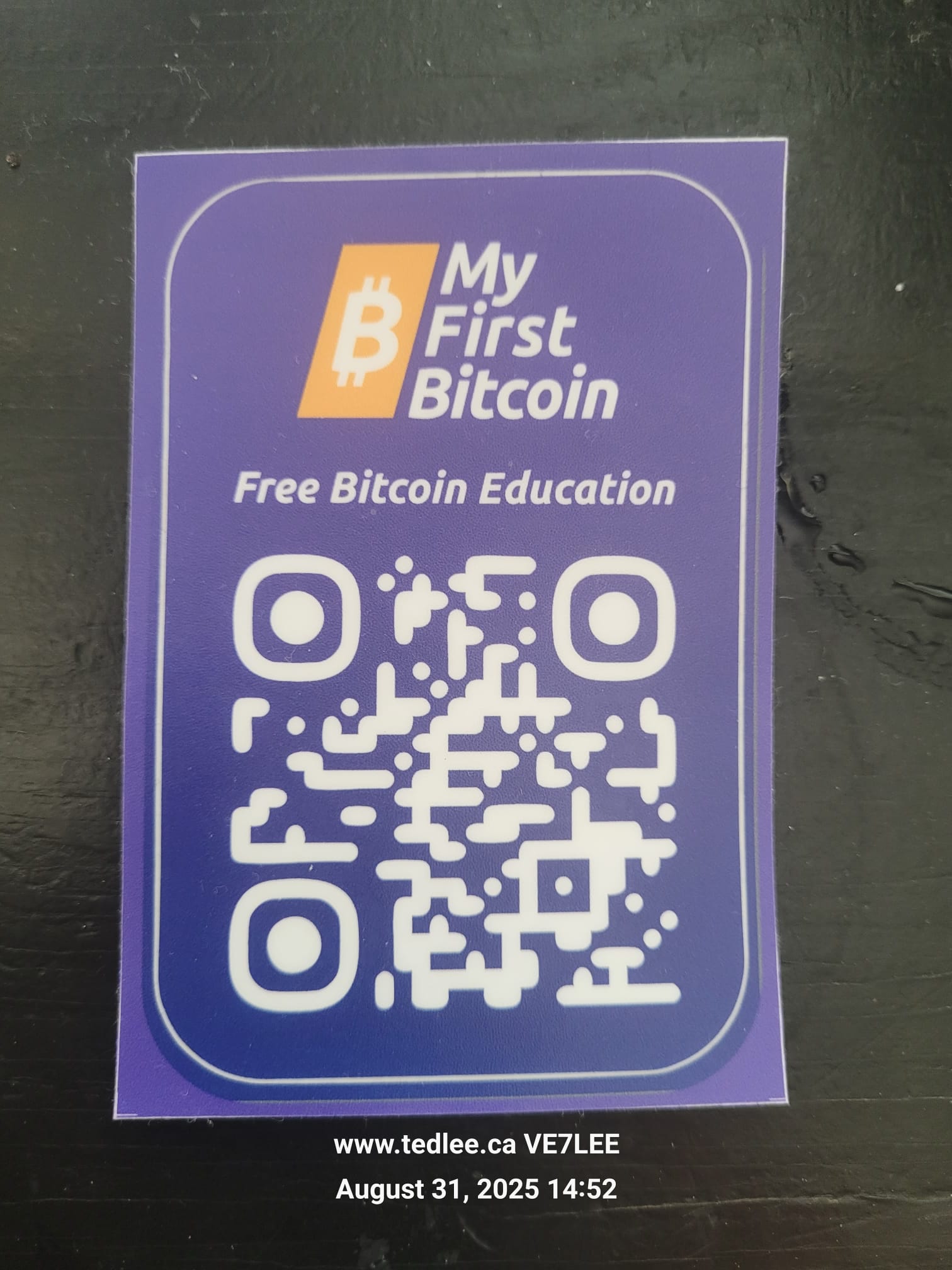"If you don't believe me or don't get it, I don't have time to try to convince you, sorry." By Satoshi Nakamoto
This is not financial, legal, or tax advice. It’s provided for educational and entertainment purposes only.

Scan the image above with your camera or visit the website at: myfirstbitcoin.io